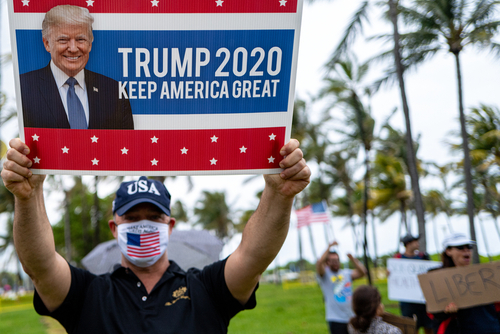Trump’s loyalty tests are reshaping how national security hires are made, raising concerns that allegiance may be prioritized over competence. His ongoing election fraud claims now loom over the vetting process for national security candidates, blending political conformity with traditional qualifications.
Loyalty Tests for National Security Candidates
In the wake of persistent claims by President Trump regarding election fraud, vetting processes for national security and law enforcement roles are receiving unprecedented scrutiny. Screening procedures now emphasize political loyalty, with checks for “Make America Great Again” (MAGA) credentials becoming a standard part of the process. Job applicants are expected to show their enthusiasm for Trump’s agenda, leading to increased polarized hiring within federal agencies.
Candidates for top national security positions in the Trump administration have faced questions that appear designed to determine whether they have embraced the president’s false claims about the outcome of the 2020 election, sources say. https://t.co/13JxfzvgAw
— The Washington Post (@washingtonpost) February 9, 2025
Reports indicate potential candidates face intensive loyalty tests, where deviation from the MAGA and “America First” policies can impact their selection. Acquiring these roles now requires more than expertise—there is a rising need to demonstrate alignment with the former president’s ideals. This new reality was highlighted in an AP News article discussing the Department of State’s tense atmosphere due to these changes.
Implications of a Politically Charged Vetting Process
Integrating political criteria into candidate vetting has sparked fears that loyalty overshadows competence. Critics argue that a narrow focus on political alignment may exclude qualified experts from consideration. With reports of new hires lacking expertise, concerns over leadership effectiveness within key security positions grow. Career civil servants now grapple with the possibility of their political views influencing their future within and outside their current roles.
Candidates for top national security positions in the Trump administration are being forced to declare their positions on two 'big lie' questions:
Was Jan. 6 “an inside job?”
Was the 2020 presidential election “stolen?” @nakashimae @wstrobel https://t.co/7kI4hrc5pX— Greg Miller (@gregpmiller) February 9, 2025
Those facing the rigorous screening process include National Security Council detailees from the Biden administration, with an intensified focus on ideological conformity. White House spokesperson Steven Cheung defends the process, labeling it mission-focused, but many worry this ignores the importance of merit. The screening’s scope extends to social media activities and even references from established loyalists, a trend confirmed in an Associated Press report.
A Supportive Network
Within the Trump administration, emphasis on cultivating a supportive network continues, with President Trump intending to fill government positions with loyalists. This initiative aims to correct perceived hiring mistakes from his first term. Personnel director Sergio Gor reinforces the need for adherence to Trump’s guidelines, marking a hiring shift towards filling roles with those who loyally abide by his vision.
Relevant social media tweets further dive into public reactions, and detailed accounts, such as those by journalists at The Washington Post, have enriched the dialogue on the process.
The ongoing focus on loyalty tests among security candidates aligns with the Trump administration’s goal for a government staffed by those aligned with MAGA ideals.
Sources:
https://www.newsmax.com/politics/law-enforcement-jobs-donald-trump/2025/02/09/id/1198385

